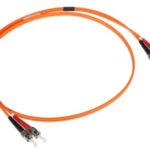Introduction: With the increasing popularity of CBD products, it’s essential to understand the differences between various CBD spectrums. Two common options available in the market are broad spectrum vs. full spectrum CBD. In this blog post, we will explore the distinctions between these two types of CBD and help you make an informed decision when selecting the right CBD product for your specific needs.
Table of Contents
Toggle1. What is Broad Spectrum CBD?
Broad spectrum CBD refers to a CBD extract that contains multiple cannabinoids, terpenes, and other beneficial compounds found in the hemp plant. However, broad spectrum CBD products go through an additional refinement process to remove THC, the psychoactive compound in cannabis. This results in a THC-free CBD option while still retaining the potential benefits of other cannabinoids and terpenes.
2. Understanding Full Spectrum CBD
Full spectrum CBD, on the other hand, contains all the naturally occurring compounds found in the hemp plant, including cannabinoids, terpenes, and trace amounts of THC. These products undergo minimal processing, preserving the synergistic effect known as the “entourage effect.” The presence of THC, although in compliance with legal limits (usually below 0.3% THC), can potentially provide additional therapeutic benefits alongside CBD.
3. Choosing Between Broad Spectrum and Full Spectrum CBD
- THC Sensitivity: If you have concerns about THC or are subject to regular drug testing, broad spectrum CBD may be the better choice. It offers the potential benefits of other compounds without any detectable THC.
- Entourage Effect: If you believe in the entourage effect and want to experience the potential synergistic benefits of all the compounds in hemp, full spectrum CBD may be the preferred option. Keep in mind that the THC content is minimal and should not cause psychoactive effects when used within the recommended dosage.
- Legal Considerations: Depending on your location and local regulations, the legality of THC-containing products may vary. Broad spectrum CBD provides a THC-free alternative that is legal in more jurisdictions.
FAQs:
Q1: Will broad spectrum CBD show up on a drug test?
A1: Broad spectrum CBD products are typically THC-free or contain only trace amounts of THC. As a result, they are unlikely to show up on a standard drug test. However, it’s important to note that some tests may be sensitive enough to detect even small traces of THC.
Q2: Can full spectrum CBD get me high?
A2: Full spectrum CBD products contain trace amounts of THC, but the THC levels are within legal limits (below 0.3%). When used as directed, full spectrum CBD should not cause psychoactive effects or get you high. However, individual reactions may vary.
Q3: Which spectrum of CBD is more effective?
A3: The effectiveness of CBD depends on various factors, including individual needs and preferences. While full spectrum CBD offers the potential benefits of the entourage effect, broad spectrum CBD can still provide positive effects due to the presence of other cannabinoids and terpenes.
Conclusion: When choosing between broad spectrum and full spectrum CBD products, it’s crucial to consider your personal preferences, THC sensitivity, and legal considerations. Broad spectrum CBD offers THC-free options with the potential benefits of other compounds, while full spectrum CBD preserves the natural synergies found in hemp. Ultimately, the right CBD spectrum for you depends on your desired effects and individual circumstances.
Explore the wide range of CBD products available in both broad spectrum and full spectrum options, and select the one that aligns with your specific needs and wellness goals.



















